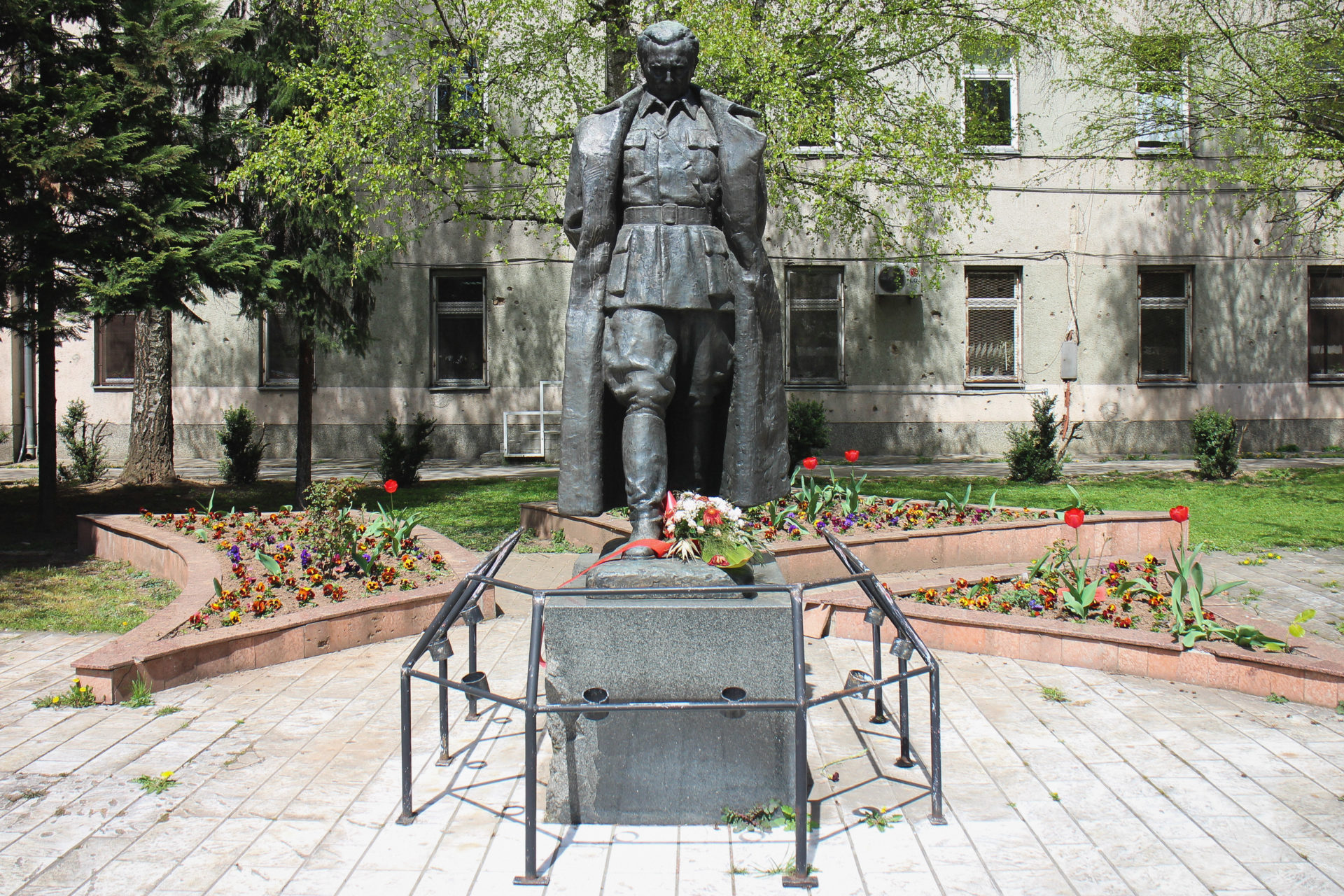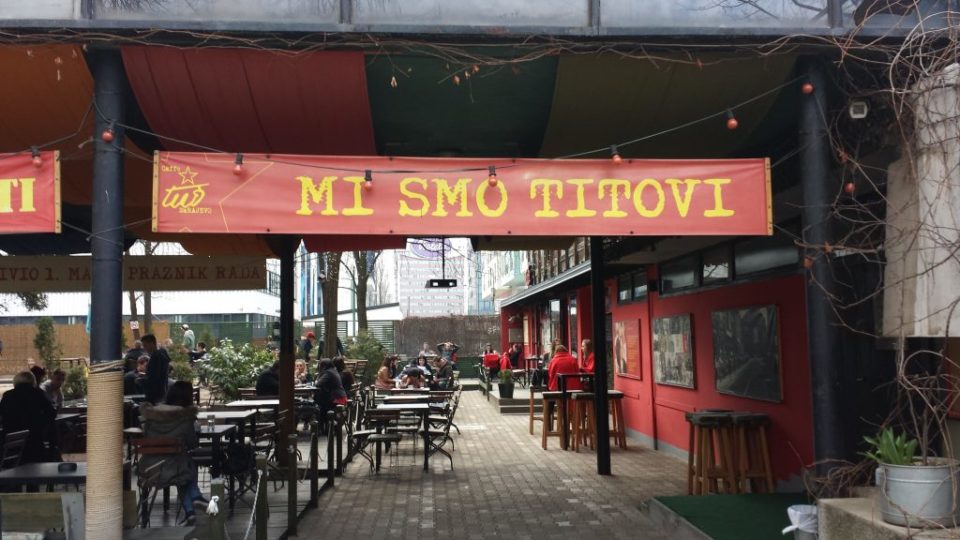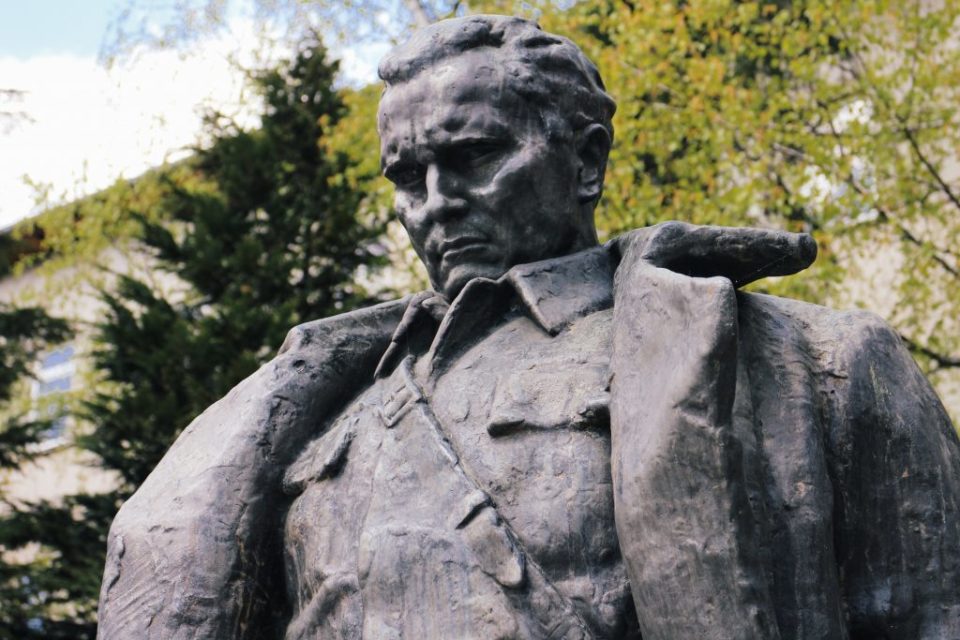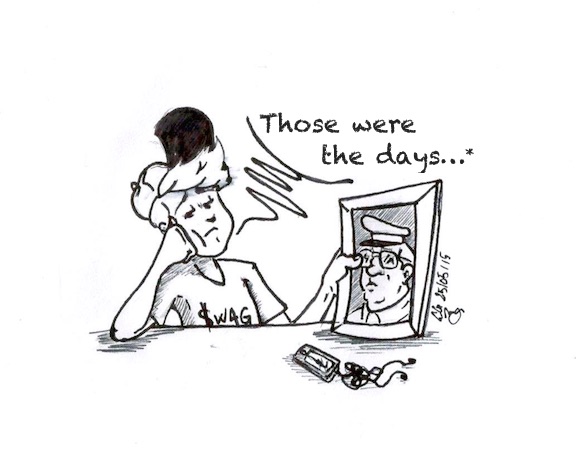
The memory of the former Yugoslavia is very much alive in Bosnia and Herzegovina, whether it’s when you have a beer at Cafe Tito, looking online on the Lexicon of YU Mythology for a titbit from the collapsed state, or in the research being conducted by scholars.
Coming from the United Kingdom, a cafe dedicated to nostalgia for a collapsed nation is a very novel concept. However, if you travel to Sarajevo, in the heart of Bosnia and Herzegovina, you will find Cafe Tito—a popular bar with the former Yugoslavia’s character, busts of its long-time leader Josip Broz Tito, and, in the playground, armored military vehicles used by the Yugoslav partisans during World War II.
In investigating the role of Yugonostalgia in Bosnian and regional politics, I spoke to two people who have expertise in the fields of memory politics and nostalgia. Firstly, Dr. Milica Popović, a Senior Postdoctoral Researcher at the Institute of Culture Studies at the Austrian Academy of Sciences, has dedicated her work to understanding memory narratives within Yugoslavia. Secondly, Leila Bičakčić, the director of the Center for Investigative Reporting (CIN), has over 20 years of regional investigative journalism experience, focusing on organized crime and corruption and the negative effect they have on the lives of ordinary citizens. Both interviewees gave their insights into the current state of Yugonostalgia and shared what their experience and research suggest about the role of Yugonostalgia in Bosnian politics and for Bosnian citizens.
Understanding ‘Yugonostalgia’
The term ‘Yugonostalgia’ was first used shortly after the end of the Yugoslav wars. In the late 1990s, Croatian politicians and national media outlets also used the term to describe those who were against the new Croatian state. This acted as a means of discrediting the actions and governance of socialist Yugoslavia, as well as evading serious discussion of it (Ugresic and Williams, 2015).
It is important to understand how the first politicized interpretation of Yugonostalgia has since evolved into three different branches. The first of these refers to the lingering adherences to the old order of socialist Yugoslavia (Aydoğan, 2022), while the second entails the coexistence of ambivalent and positive memories of the former state, in direct competition with nationalist narratives (Korchnak, 2023). The third and slightly different interpretation combines consumerist aspirations to revive Yugoslav ideals through merchandise with the active defense of the past, condemnation of the present, and hopes for the future (Ugresic and Williams, 2015). These interpretations help understand how Yugonostalgia can represent so many aspects of memory—political and otherwise.

The first use of Yugonostalgia by political elites and national media has affected efforts to understand feelings around the former socialist system. The last dedicated media driven efforts to understand public opinion and memory of the socialist regime were conducted in 2015 and 2017, with limited study of how these opinions influence political action (Moje Vrijeme, 2015; Keating and Ritter, 2017).
Popović, however, advised against understanding low-levels of media attention as an indicator of a lack of interest in Yugonostalgia and Yugoslavism as a whole:
“For scholars, the topic continues to be relevant but perceived and researched through different lenses: on one side, researching the historical relevance of the socialist Yugoslavia in all its aspects: political, economic, international, cultural; and on the other side, researching the relevance and potential of both Yugonostalgia and Yugoslavism today. I would say more truly relevant research is being produced, and less media banalization is happening – but that would most definitely not mean less interest.”
As she highlights, the media’s interest in Yugonostalgia fluctuates. Additionally, the academic work of Popović and many others indicates that there is an interest in studying Yugonostalgia which is not reflected in the inconsistency of media publications.
However, the extent to which scholarship influences the daily political sphere is up for debate. Bičakčić emphasized a contrasting sentiment towards current research, suggesting that current efforts toward understanding Yugoslavia “are mostly in the historic sense, not the socio-economic, not the kind of sentimental attitude towards the period, more building the historical background of the events in the 80s.” This demonstrates the gap between the perspectives of ordinary citizens and the academic research currently being conducted.
The Tarnishing of Yugoslavia in BiH Politics
The image of Yugoslavia put forward by elites is crucial to the discussion of how its legacy manifests in politics. Both of our interviewees observed that Yugonostalgia and Yugoslavism are fundamentally opposed to the narrative that politicians within the country want to push.
“The very notion of Yugoslavism is incompatible with such state structure, as well as with the neoliberal ethnonational politics which is shared across political parties and entities,” said Popović.
Bičakčić pointed out that the ruling politicians at the time of Yugoslavia’s collapse were all “dissidents of the Yugoslavian order and are now trying to pursue different versions of history. Now that we have broken Yugoslavia and we are at a crossover of where to go, it’s important to establish the new ‘truth’ because that will then shape the future of the country.”
The historical context of Yugoslavia’s demise sheds light on these opinions, and why a negative narrative of Yugoslavia persists among political parties.
As Knezevic (2017) notes, “Yugoslavia did not fall—it was pushed. It didn’t die—it was killed.” Bičakčić similarly described how the Yugoslav system was ultimately torn apart by political actors that wanted to see that system end. This conceals a more uncomfortable truth: the ethno-nationalist sentiments that fueled Yugoslavia’s collapse were effective and accepted by large swathes of former Yugoslavs, many of whom willingly choose for their republics to leave the entity (Aydoğa, 2022).
The argument that countries are better-off on their own is one that Bičakčić sees as still highly relevant in the efforts of political elites to influence Bosnians:
“In Yugoslav times, you continuously had attitudes of sentiment and trust between the nations, but the narrative being built today is that you shouldn’t trust others… It’s common on all sides—don’t trust, don’t mix, don’t crossover, stay within your own group.”
This can be seen in the rate of interethnic marriages, which accounted for as many as 13% of all marriages in Bosnia and Herzegovina during the Yugoslav period but had crashed to just 4% by 2017 (Crosby, 2017).
While Yugoslavism is tarnished within the political sphere, there are also elements of ‘Yugonostalgia’ that are used by many political players to sustain and bolster ethno-nationalist narratives. Bičakčić pointed to how many political parties position themselves in relation to Yugoslav parties:
“You have the Social Democratic Party who built themselves on the former communist party and claimed their heritage. But when you look at their programs right now, you don’t see much of that heritage.”
Similarly, on the other side of the political spectrum, Milorad Dodik of the Republika Srpska entity has made several attempts to equate the struggle of Bosnian Serbs to that of the partisans led by Josip Broz Tito who spearheaded Yugoslav resistance during World War II.
Yugonostalgia and Yugoslavism as ‘Resistance Politics’
Popović points out that Yugonostalgia and Yugoslavism is also seen as a form of resistance politics, wherein “the very act of remembering the lack of interethnic hatreds and a shared sentiment of Yugoslavism; the quality of normal life in Yugoslavia and the hope for a progress, the social mobility and the belief in the socialist paradigm; antifascist tradition of the Partisan struggle and victory in the Second World War; the internationalism and Non-Aligned Movement’s anticolonial struggle – it all becomes an act of resistance.”
Looking at the most recent polls, positive remembrance of Yugoslavia and Bosnia and Herzegovina’s place in it has been strong. In a 2015 poll, 92% of Bosnians aged forty-five and older said they lived better under Yugoslavia, with 61% saying they could live under a one party system again (Moje Vrijeme, 2019). Furthermore, a 2016 survey found that as many as 77% of Bosnians view the breakup of Yugoslavia as having done more political harm than good, which was linked largely to the dysfunctional governance of the country (Keating and Ritter, 2017).

Academic works have also pointed to positive interpretations of the Yugoslav past. In a 2022 study, many interviewees expressed that, despite the suppression of religion in socialist Yugoslavia, they had felt safer then around people of differing religions than in the present (Aydoğa, 2022).
Nevertheless, it is important to acknowledge that there is very little belief or desire for an actual return to the socialist Yugoslav system.
“Nobody calls for ‘going back,’ and that would indeed be the most unproductive approach to the topic, but both Yugonostalgia and Yugoslavism in their most productive forms provide sources of resistance strategies – and of hope – to the gloomy hopeless present,” Popović observed.
For Bičakčić, certain aspects of Yugoslav society appear lost for good: “The sentiment of Yugoslavia; belonging to the larger group, vesting your trust in the people next door… In that respect I don’t see that Yugoslavia is to be resurrected, ever again.”
Brotherhood & Unity Going Forward
Yugonostalgia and Yugoslavism can be understood as having a mixed role within the political sphere of Bosnia and Herzegovina, which entails a level of criticism. Bičakčić pointed to how much Yugonostalgia manifests as political action:
“If people talk to you, they will be Yugonostalgic: ‘Oh, it was so much better, oh this building was built in Yugoslavia, oh it was so much better.’ But at the end of the day, they will go back to their religious rituals and ethno-cultural practices.”

It’s a cynical understanding of the limits of Yugonostalgia, but one reflected in, for example, election results. In the most recent 2022 presidential and parliamentary elections, the major ethno-nationalist parties continued to hold a strong grip on ministerial positions (NDI, 2022), a trend that also continued at the 2024 municipal elections. Such election results have always spurred a pessimistic outlook on actual change: “a settling for tribal politics and the fear of other ethnicities grabbing power” being a consistent theme through elections in the country (Knezevic, 2019).
At the regional level, too, there is a great deal of skepticism, tied to floundering initiatives that identify more challenges to regional cooperation than they actually solve. The recent Open Balkan initiative, for instance, was riven with distrust from several nations, including Bosnia and Herzegovina, which preferred the Berlin Process (Mirković, 2024). The Open Balkan is an economic and political zone of three member states in the Balkans, those being Albania, North Macedonia and Serbia. However, the Berlin Process—initially intended as a 4-year initiative to facilitate the regional integration in the Western Balkans—is now in its tenth year, with few tangible results or implemented agreements (Shuka, 2024).
There is no doubt that Yugonostalgia and Yugoslavism will continue to develop and evolve, through culture, arts, social interactions, politics, and the study of history in Bosnia and Herzegovina and throughout the region. For Popović and Bičakčić, the goal should be to comprehend the entirety of Yugoslavia’s legacy. Nostalgia can still exist, but it needs to be better informed by the facts of what Yugoslavia was, and how it came to an end. Only then will this legacy be able to play a more informed role in Bosnian politics, with tangible impacts.






